The Importance of Community
"I learned to be determined and never give up, and, with the help I need, I can take take on anything" - Fred
Success rarely happens in isolation. Student success is impacted by many stakeholders, as illustrated in Figure P.1—people with disabilities themselves; parents and family members; peers; K-12 teachers, counselors, and support staff; postsecondary administrators, faculty, and staff; legislators and policy makers; government service providers; and community leaders and group members. The Disabilities, Opportunities, Internetworking, and Technology (DO-IT) Center at the University of Washington, with funding from federal, state, and private sources, has addressed issues in most of these areas with projects, publications, and web resources described at www.uw.edu/doit.
Specifically, in AccessSTEM, AccessComputing, and other programs led by DO-IT, mentor, peer, and near-peer support occurs both in person and within an e-mentoring community. Participants are mentored within a group, thus many contribute to conversations. Participants also disseminate academic- and career-enhancing resources that benefit all community members. Benefits of the e-community approach may include the following:
- Individuals benefit from the experiences of a large group of mentors, peers, and near-peers.
- Mentors can specialize in areas of greatest strength.
- Mentors learn techniques from each other by attending to the communications that take place.
- The program performs successfully even though some mentors are less available and skilled than others.
- Using asynchronous, text-based communication on the Internet eliminates barriers posed by other forms of communication with respect to location, schedule, and disability.
- Program administrators view all group communications that take place, thus making it possible for them to guide and contribute to conversations.
Most AccessSTEM and AccessComputing mentors are college students, faculty, engineers, scientists, or other professionals who have disabilities. Mentees are pursuing STEM careers, and they all have disabilities, including vision, hearing, mobility, health impairments and specific learning disabilities. Frequent electronic communications and personal contacts bring mentees, peers, near-peers, and mentors together to facilitate academic, career, and personal achievements.
DO-IT’s mentoring program received national recognition when it received the 1997 Presidential Award for Excellence in Mentoring “for embodying excellence in mentoring underrepresented students and encouraging their significant achievement in science, mathematics, and engineering.” It also received the National Information Infrastructure Award in 1995 “for those whose achievements demonstrate what is possible when the powerful forces of human creativity and technologies are combined.” Research results suggest the success of the DO-IT electronic community in promoting positive college and career outcomes. But more importantly, the DO-IT e-mentoring community has documented its value in the successful lives of its participants and the willingness of those who were once protégés to support young people in the community as they were supported in their youth.
In the following section of this book, students share stories about the importance of community and the influence of supportive individuals in their pursuit of STEM careers.
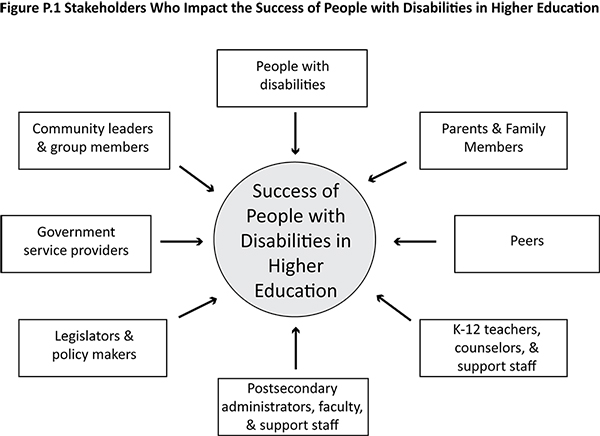
Imran
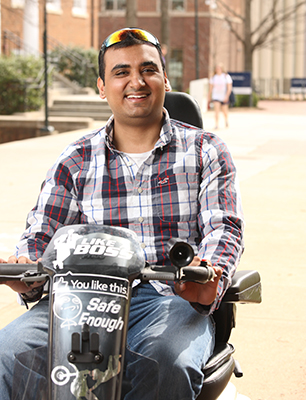
Engineering
I graduated with a degree in system and information engineering from the University of Virginia (UVA) and am currently pursuing a master’s degree in system engineering at Cornell University. I was diagnosed with Friederich’s Ataxia (FA) when I was 18 years old.
Even though I had symptoms since the age of 12, it wasn’t until my senior year of high school that I realized that my condition was serious. After undergoing rigorous testing, seeing a multitude of doctors, and receiving some misdiagnoses, I was finally diagnosed with FA, a degenerative genetic disorder. I had never heard of FA before, but it was about to change my life drastically. As I learned more through in-depth research into the disorder, I became depressed about my future. I graduated from high school a couple of weeks after my diagnosis. With what I knew about FA, I did not think I would be successful at college, although I did not tell anyone that.
Regardless of knowing that failure was a possibility, I continued my education with the same confidence in my abilities that I have today. I always knew and trusted my abilities, but my FA progression and how it would impact my education and life was always a question.
I gained tremendous support from family, friends, professors, advisors, career counselors, doctors, physical therapists, and especially from the Student Disability Access Center at UVA. That support helped give me the confidence needed to achieve greatness despite obstacles I face. With their support, I have been successful—participating in multiple internships and initiating many projects.
I also started a Facebook page called “Fight Against Friedreich’s Ataxia,” which now has over 3,000 members. Many of them are also experiencing life with FA, and they have been willing and courageous enough to share their unique stories with us. The page serves as a support group and helps raise awareness about Friedreich’s Ataxia.
I actively participated in the Disability Awareness Week at UVA – organizing and planning events and encouraging my peers to attend. I continue to raise awareness about inaccessibility and negative messages about disability at UVA and Cornell University.
Although FA may have slowed me down, it has also taught me valuable life lessons. Ultimately these challenges and my experiences have made me who I am today, and for that I am grateful.
Fred
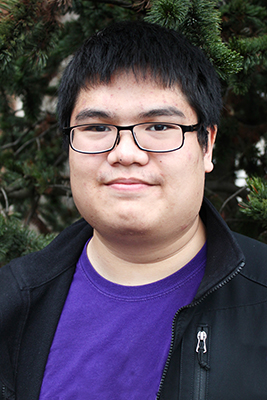
Engineering
I have always had an interest in math and science. Something about these fields has always just made sense to me. When I started at Bellevue College (BC) in 2011, I tested into calculus. However, I have always struggled with English classes—particularly writing. My first quarter of college was especially hard because I struggled with not only taking too many classes, but passing English as well.
I found that to solve some of my problems, I needed to reach out to a community of supports. Through consultations with an academic coach, the Autism Spectrum Navigators program at BC, and some friends and classmates, I realized that it would be better for me to take fewer classes, giving me more time to focus on my work.
After that, I started performing better in my English classes, learning to focus on only one or two things at a time. My hard work and patience eventually paid off—I graduated BC with a two-year degree after passing Calculus 4 and English 235.
I was accepted as a transfer student at both the Seattle and Bothell campuses of the University of Washington. Not sure about the best way to analyze those options, I connected with my community of supports once again, who helped me realize that Bothell’s smaller, more intimate campus would better suit my educational needs.
I chose to major in computer science because of my passion for mathematics and programming, and because there are expanding job opportunities in computer science. Eventually, I would like to work for a large tech company, such as Microsoft. Ideally, I would be programming video games. I want to generate ideas with others to create the best products possible.
Though it brings challenges, my disability has also made me who I am, and I am thankful for that. I’ve learned to be determined and to never give up, and that when I get the help I need, I can take on anything. The biggest hurdle I’ve had to overcome is how to sacrifice, whether it be summers to take on classes at school or learning how to drop a class that just doesn’t fit with my workload. Luckily, I have developed a strong community of people who genuinely care about my success.
Alexander
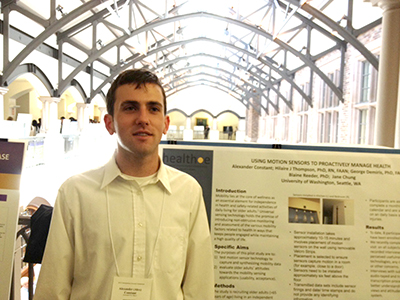
Information Technology
Autism was something I never talked about or thought of in depth when I was younger, even though I had to accommodate it throughout my high school education. For the University of Washington (UW), I wrote one of my application essays about my experience with autism, which helped me feel empowered by having a disability.
When I was accepted to college, no one contacted me about getting accommodations for my disability. During the first week of school, I went to a seminar where all diversity-related student organizations presented their materials. I attended a presentation and was surprised when some people sounded less positive than I imagined they would be about the disability community and services. This made we want to explore autism more and to delve into other facets of disability culture.
In college, I quickly realized that I needed the accommodations that I used in high school. As such, I ended up getting re-diagnosed for autism, which allowed me to learn a lot about myself. This took a very long time. I finally received my accommodations during my third quarter at the university. The academic accommodations have been very convenient and private.
I became interested in technology after doing research on “smart home” technology. I also worked as a student technician in the UW libraries, which pushed me to focus my major on information technology, which is the use of computers, storage, networking and other devices, infrastructure and processes to create, process, store, secure and exchange electronic data.
Though I have encountered some challenges, I have grown as a person and learned the positive aspects of the disability community and culture. I joined a large community called AccessSTEM after seeing fliers in the Disability Resources for Students office. Through a friend who also had a disability, I heard about the Autistic Self-Advocacy Network and a disability justice circle. Because of these networks and my own re-diagnosis at age 19, I feel more open about talking about my autism and autistic perspectives. I never want people to feel shame for who they are or what they represent.
Christine
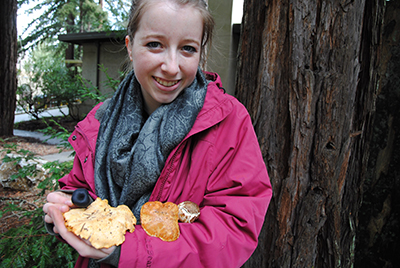
Biology
Having a learning disability has been the hardest obstacle in my academic career. In third grade, I could only do my math times tables by counting kidney beans. In fourth grade, I had an amazing teacher by the name of Ms. Marinos. She became my math tutor from fifth grade through seventh grade. Ms. Marinos helped give me much-needed confidence in my future academic work. I was even placed into the honors math and science program at my high school. I went to an all-women’s private high school in San Francisco with small classes, which helped me learn.
Growing up, I went to special summer schools and workshops that taught me the skills I needed to keep up with my classmates. I worked twice as hard as my peers, just to be at the same level of understanding. In high school, my grade point average was a 4.0. I understood that with a learning disability, I could never slack off, and that I needed a community of supportive people behind me.
For example, my parents made a huge difference. My mother and father are both very intelligent people who have degrees in higher education. My mother especially was there for me when I struggled with school as a child. She was a personal tutor at home for me and she dedicated her time to my learning. Her patience, persistence and dedication are the reasons I have a strong foundation in academia. My father majored in physics. He is the reason I love science and am pursuing a career in the STEM field. His overall knowledge about daily life and the way that he sees the world makes me intrigued about what else is out there in the world. My parents continue to support my academic career at college.
I am currently a second year college student at the University of California, Santa Cruz, where I am earning my degree in biology. Here in Santa Cruz, my main accommodation is being given extra time on exams in a distraction-reduced room. Along with the testing accommodations, I also receive textbooks and print material in an alternative form, and I have access to extra tutoring, which is provided through the University.
In college, I really enjoyed two general chemistry labs connected to my classes. I also like foraging for mushrooms on the UC Santa Cruz upper campus trails. I enjoy working with plants, and I am leaning towards a focus in evolution and ecology for my biology major. I’m currently applying for internships next quarter, and I will be leaving to study abroad for a semester in New Zealand next year. I am proud to be a STEM major and I can honestly say that having a learning disability has made me who I am today.
Jackson
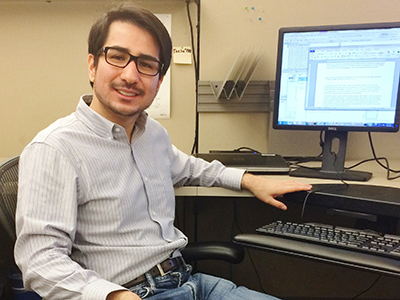
Technology & Programming
For me, having a strong community of supports was the difference between dropping out and graduating from college. Possibly due to my disability, it was hard to make friends and set up the sort of community of supports that I think many people develop naturally. My academic performance suffered as a result, and after a disappointing freshman year, I took a semester leave of absence to collect myself. When I came back, I quickly and deliberately created a strong community of supports both in and outside of school.
After reaching out to my academic advisor, I found out that my college offered several supports to its students for no additional charge, and I used these programs as soon as I could. I scheduled regular meetings with my academic advisor and enrolled in peer tutoring to help me improve my academic performance. I also reached out to Disability Resources for Students, and, after developing my relationship with them, they helped advocate for me with my professors and helped ensure that I received the proper accommodations, such as extra time on exams and peer tutoring.
I also reached out to several disability support groups, including AccessSTEM, to connect with others. I found that people who had a similar disability immediately understood what I was going through and expressed sympathy and support, without me having to explain my first year or apologize for my disability. Because of this, I made some of my strongest friendships during college through these groups, which also connected me with many career opportunities and internships.
While I was in college, I served as a paid information technology intern at a major government office in Washington D.C. through an internship placement program hosted by the American Association of People with Disabilities.
Probably my most important supporters were (and still are) my parents. During college, I connected with them on a daily basis to talk about things on my “to-do” list and make plans. They kept me on top of all my social, academic, and career obligations. Now as I transition to my adult life after college, I’m maintaining my own to-do lists independently.
Thanks to my community of supports, I came back from my disappointing freshman year and graduated from college. I’m now beginning my career as a programmer analyst at a major utilities company. I’m currently searching for my new community of supports as I begin this new part of my life.
Kelsey
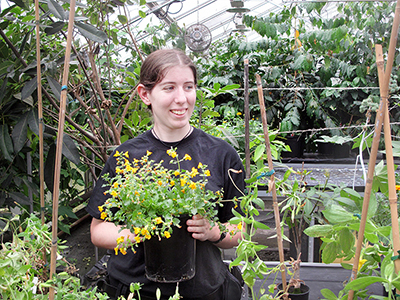
Biology
I’ve been interested in biology for as long as I can remember. My parents are scientists who worked at Massachusetts Institute of Technology (MIT), so I was always encouraged to be interested in science; listening to them talk about research helped me understand what science was like. I spent time running around in the woods, trying science experiments, looking at edible plants, and appreciating the amazing diversity of natural life.
Before high school, I attended some summer camp science courses. When the time came to start high school, I decided to enroll in a biotechnology program at a local vocational high school. I spent four years learning all about biology, how to use lab equipment, and how to design independent research projects. I learned to keep a paper lab notebook, but have since switched to keeping my notebook on my computer, since I have trouble handwriting due to joint problems and pain. For my senior capstone, I interned at Baylor College of Medicine in Houston, where I worked extensively on the Human Genome Project.
I attended MIT, where I took courses in both biology and computer science and had several undergraduate research experiences with faculty. I decided after a summer researching the genomes of bacteria found in the ocean that I really wanted to focus on evolutionary biology. I also spent a year studying molecular biology. After graduating with my bachelor’s degree, I worked for a year as a research assistant in a lab that studied how DNA and proteins interact in yeast. While working, I began having problems with my hands due to a connective tissue disorder, so my lab director and I ordered a special electronic pipette, which really took the strain off of my hands. I also got a special device to open tubes.
Currently, I am working towards a Ph.D. in biology at the University of Washington (UW) in Seattle. UW students and faculty are passionate about all areas of biology and the diversity of natural life. I have authored papers on my research, written a grant, presented my work at conferences, been a teaching assistant, and worked in the field in Yosemite National Park. Although I can no longer drive or stand up for long periods due to problems with my autonomic nervous system, I can lead a fieldwork team and navigate for a driver.
At the UW, I network with students, faculty, and staff with disabilities. My eventual goal is to be a tenured professor working in evolutionary biology. In my spare time, I also love birdwatching, gardening, and hiking (I use hiking poles and take lots of breaks).
Daman
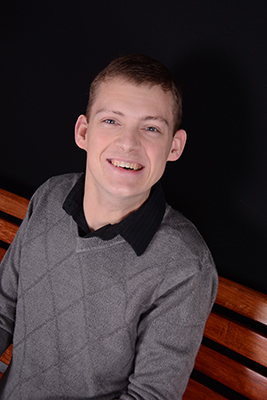
Technology & Advocacy
Because I have cerebral palsy, I have used technology since elementary school to complete my homework and other tasks. I am an avid keyboarder, but I have difficulty using a mouse. When I was quite young, technology became my passion. In high school, I also gained a passion for disability advocacy and culture.
I entered Western Washington University (WWU) with two goals: earning a computer science degree and starting a new community in the form of a disability awareness student organization. Ultimately, I decided that computer science wasn’t quite the right fit for me. Luckily, I discovered WWU’s Management Information Systems (MIS) program, which allows me to interact more with people. MIS is the ability to communicate business needs in terms of technology and then create or find the best solutions.
Within two weeks of starting college I met my second goal, when I co-founded “WWU Students for Disability Awareness” (SDA). I served as president for three years. This organization became the disability voice on campus, making disability a part of the diversity landscape. After three years, SDA evolved into the Disability Outreach Center to institutionalize and continue our advocacy work. My focus shifted to my academics, a new job, and national disability advocacy.
After a summer internship in Washington, D.C. the U.S. Department of Agriculture hired me as a virtual intern to improve their website accessibility. My role was to ensure that web pages and documents posted on the website were accessible. I knew this job was the start of my career because it combined both my passions: technology and disability advocacy.
A few years later, I began my masters in business administration in an accelerated one-year program at WWU. Simultaneously, the Federal Housing Agency gave me the opportunity to coordinate their web accessibility agency-wide. These two opportunities allowed me to learn how to implement accessibility across an organization.
Upon graduation, I was offered a position at SSB BART Group, a web accessibility consulting company in Washington, D.C. At SSB BART Group, I’m learning from other experts, which will allow me to advance my career. My next goal for myself is taking on and managing large IT accessibility projects.
Developing a broad network of people has contributed to my success. I constantly network with disability advocates, former professors, current and past colleagues, and people I meet at conferences and events. Facebook, LinkedIn, and personal interactions with my contacts help me open doors to new opportunities, serve as a mentor, and offer advice to others. Success for me comes from combining my love for technology and disability issues to build strong collaborations and change the world.
Brittany
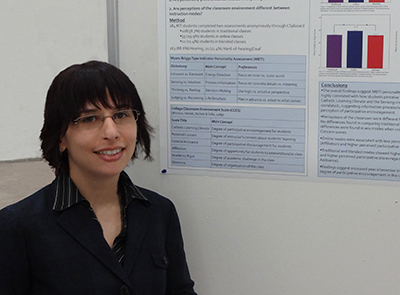
Psychology
As an individual with multiple disabilities that include cerebral palsy, mitochondrial disease, and hearing loss, having the right accommodations for my college career was critical, but knowing what accommodations I needed proved to be less obvious than I expected. This led to many challenges at the beginning of my college career at the Rochester Institute of Technology (RIT) in Rochester, New York. Though I had interpreters in my classes, I still missed a lot of critical information in class due to difficulty taking notes. I also struggled with the fast-paced quarter system, and with obtaining adequate energy levels and sleep.
I found myself overwhelmed by the college transition. I knew I needed help adjusting to it and decided to develop a community of supports. Reaching out to people on campus helped get my accommodations better-defined. I met with my accommodations advisor, who suggested I take a lighter class load and that I send out a letter to my professors informing them of challenges that could impact my attendance in class.
An abnormal psychology course led me to rediscover my interest in human behavior and mental health, so I decided to pursue a psychology degree. This decision led me to my exposure and interest in STEM, because RIT’s psychology department was a research-based program. One person in particular was most influential during my time in the psychology program at RIT.
I first met Dr. Tywanquila Walker when she taught psychological statistics. She was a remarkable and passionate teacher, and I quickly found myself putting in extra hours of study time to master the concepts.
I found a passion for the work that was highly unexpected. I got top marks in the course and also found a love for learning more about research and what I could do.
Dr. Walker was one of my advisors for my senior capstone project. She encouraged my research ideas, and allowed me to work in her child development lab where I got experience with recruiting subjects, administering testing, using new software, and solving problems.
Had I not taken the first step and experienced first-hand what the field of psychology had to offer, I would have missed out on many valuable things. Now that I have graduated, I find myself facing uncertainty similar to when I was a high school graduate. The difference is, I know a little more about myself and know I can contribute to this field. It may take time to figure out what my specific direction is, but I’m looking forward to the potential I know is out there.
Matthew
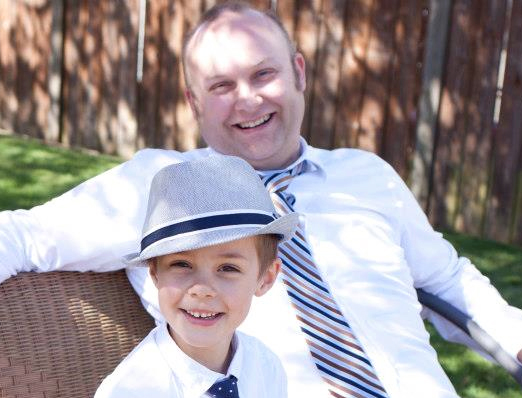
Computer Science
When people find out I have dyslexia, they ask “what is it like?” I’ve never found an answer for this question because I’ve never known what it’s like to process the world around me without it.
I first found out I had dyslexia in the early 80’s at the age of five. Luckily, I was in a school district that had a program for students with learning disabilities. However, I always felt different from others when I would go across the hallway and, later on, across the school district. At one point, I went to three different schools in three years as my needs grew.
Computers came into my life while I was moving between schools and had an abundance of spare time. I realized that when you are programming a computer, it doesn’t care if you have a hard time proofreading your own work, or if you misspell something. It only cares if the answer is correct, simple, and objective. I found the binary nature of the result and feedback comforting because I didn’t have to explain ideas in an abstract and, what at times felt like, arbitrary language. During that time, I felt a computer could understand what I was saying better than others around me due to my struggles with reading and writing.
Reflecting on my education, I see two pivotal moments. The first was being a part of a college-preparation program for high school students with disabilities called DO-IT Scholars. When I joined, I had been, either consciously or unconsciously, just coasting through school because it was hard working around my dyslexia. In the Scholars program, I met others who were working through similar issues with success and even joy. I felt part of a community that was interested in academic success. This helped renew my focus.
In high school and college, advocating for myself was hard—not because the programs weren’t present, but because I didn’t think I needed help and, at times, neither did others. Accepting that I needed accommodations, like extra time for tests, a proofreader, or a quiet room, made a huge difference in succeeding in school. I also learned that the goal of accommodations was to provide equal access, not to provide special treatment.
As I get older, I realize my dyslexia does make me different, but it doesn’t disable or disadvantage me. It allows me to see problems, understand people, and view the world in a different way. Immersion in STEM, and more specifically computer programming, has been one way that I have found that allows me to make a huge contribution by seeing the world in a way that others often don’t.
Kayla
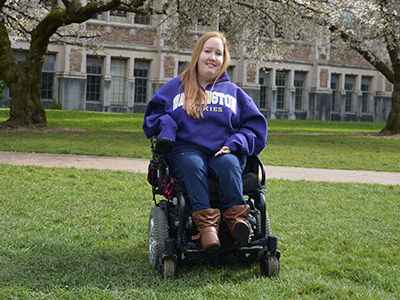
Research & Advocacy
When I was in high school, I felt lost and unsure of where I was headed in terms of college and my future career. I felt as if I was waging a constant battle against my label as a student with a disability. Not being encouraged to take Advanced Placement classes, participate in the Running Start program, or even knowing other students with disabilities who were college- bound really had an effect on my confidence level. During my junior year, a supportive special education teacher exposed me to life-changing resources that helped me get into college and get ready for transition out of high school. Without her, I don’t know where I would be.
Being a first generation college student, I had very little support in the transition process, especially with the added difficulties associated with being a student with a disability. This teacher told me about the DO-IT Scholars program, a transition to college program at the University of Washington for students with disabilities. From that point on, I became a different person. Building a support network of other people with disabilities and mentors who could help me find job opportunities made all the difference for me. After all, your support network is made up of your biggest fans—those who will cheer you on and remind you that you are capable of succeeding.
After conquering the transition to college, my next challenge was finding the right career path. Because I struggled in math and science classes in high school, I never considered that I would take a path toward related fields. Fortunately, my college experience allowed me to take classes from all disciplines, and I discovered my love of research. I was able to channel my passion for social change by designing tangible ways of creating that change. I studied community psychology, a field that draws from multiple perspectives in order to examine the wellness of entire groups of people.
I am pursuing a master’s degree that bridges what I learned in my undergraduate program to a potential career. I would like to focus on research and program development to make positive change within the systems put in place for people with disabilities. I envision a world where the disparity in employment between people with disabilities and people who are not is reduced and more opportunities for minorities are put in place. I know how influential these opportunities can be.
Jesse
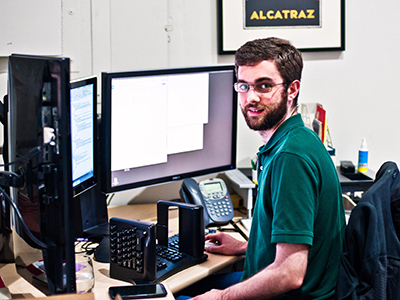
Software Engineering
I used to rarely bring up my disability; it was something I kept to myself. However, I’ve discovered that by being open about it, I gain an important opportunity to frame the conversation about my disability, as well as make specific connections with people. I think that making the right connections at the right time can be crucial for success.
I have dyslexia, which, as a child, not only impeded my ability to read, but made me often see and interact with information in a different way.
I went to Goshen College and received a bachelor of science degree in computer science. I interned at a variety of technical companies—for two summers I worked for Microsoft, and the summer after graduating college I interned at NASA, IBM, and 3Tier Group. These experiences taught me how to learn on the job, collaborate with others, take on new tools and technologies, and solve problems. In the field of computer science, learning and problem solving are two constants. In the tech field, there are always new technologies, new software, and new techniques, so being able to learn and grow on the job is an important skill to have.
Eventually I began working for an organization called Digital Foundry as a software developer. I am now the technical lead on software projects for outside clients. In my job, one of the communication skills I try to teach software engineers is how to explain the user experience to the client. Instead of using technical jargon, it’s better to show the clients something they are invested in. This fosters trust that we are looking out for them and their concerns and initiates a collaborative conversation about how to best meet their needs and goals. My disability helps me see the world and technology in a different way, and how I see the relationship between one thing and another is really helpful in my work.
Working with a broad range of software projects and leading a team of software engineers allows me to enjoy different tasks and focus on different skills. I really enjoy my current career trajectory, and I plan to continue where I am for the time being. I try to teach others what I have learned: that it’s my responsibility to do what’s needed to be in control of my own success.